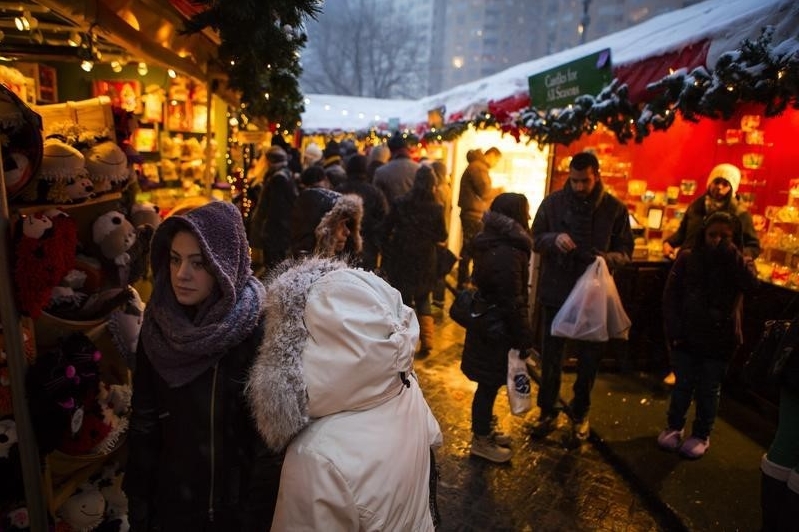
Financial planner Barry Eckstein has heard a lot of extravagant spending stories. But when clients were chatting with him about the holidays a couple of years ago, he could not believe his ears.
The couple had bought a mink coat. Not just any mink coat, mind you - a mink coat for the their precious little Yorkie.
"It was custom-made, white, and cost a couple thousand dollars," said Eckstein, of Wantagh, New York. "My initial reaction was: 'Oh boy'."
Canine couture might not be on everybody's shopping list for holiday gifts. But the Furry Furrier is just one end of a spectrum. For the rest of us, even when we know we should not be spending so freely, we do it anyway. It is as if we turn our brains off in November, and then switch them back on in the New Year.
Indeed, almost four in 10 people say they spend more money than expected for holiday gifts, according to a new shopping survey by credit agency Experian. That makes for a whopping $806 per person this holiday season, up from $758 last year.
To finance the spending flurry, 12 percent of people are planning to open up new credit cards for the holiday season - and 9 percent predict that they will be paying off those charges late.
"The majority don't even have a holiday spending budget in place - and it makes it very hard to plan if you don't have a budget," said Rod Griffin, Experian's director of public education.
The two biggest culprits for this holiday brain freeze, according to personal-finance expert Bruce Sellery, author of "Moolala: Why Smart People Do Dumb Things with Their Money": Tradition and guilt.
"Tradition because people think, 'This is the way it's always been done, and there is no other way to do it,' " said Sellery. "And guilt because people feel they have to buy more and more things that nobody really needs."
AVOID THE MADNESS
Since gift-giving is an exchange, you can help both sides avoid what Experian's Griffin calls "Dark January." Simply come to an agreement beforehand with the various friends and family members in your life about who will exchange gifts and a price threshold, and save everyone a ton of money in the process.
Otherwise you could fall into holiday horror stories like Brooklyn-based author and comedian Sara Benincasa. She was once given membership to an "incredibly posh" gym which cost around $3,000, she estimates.
"The person was not so subtly trying to tell me to lose weight," remembers Benincasa, author of the new book "DC Trip." "It felt like a pretty demeaning gift. Unsurprisingly I used the gym twice -- both times just to sit in the sauna."
To avoid similar disasters, remember that you have a choice in how your holidays are designed. Bruce Sellery, for instance, arrived at an elegant solution with his many siblings and cousins: They stopped giving gifts. This was the suggestion of his sister, a stressed-out mom of three. "She just said one year, 'Can we stop doing this?' It's been so great for everyone's stress reduction," he said.
Of course you do not have to go quite that far, and completely eliminate all gift-giving from your life. You can simply set an artificially low limit, and have a $5 gift-exchange among a group of friends or relatives, which are "hysterical," says Sellery. (His own contribution to his family's exchange one year: A collection of miniature soaps he acquired from luxury hotels.)
You can also call off the Holiday Arms Race by setting a hard cap: Agree that every family member only gives one gift to one person, in a Secret Santa-type exchange. Or take what you would have blown on gifts and select a charity together - sponsoring a child in poverty overseas, for instance, whose story and progress you could follow together as a family.
A final tip, from planner Barry Eckstein: Set a budget and do all of your holiday saving for the set amount throughout the year, in a dedicated account. Then force yourself to stick to that amount. That will likely eliminate most big-ticket impulse purchases - such as doggy mink coats.






